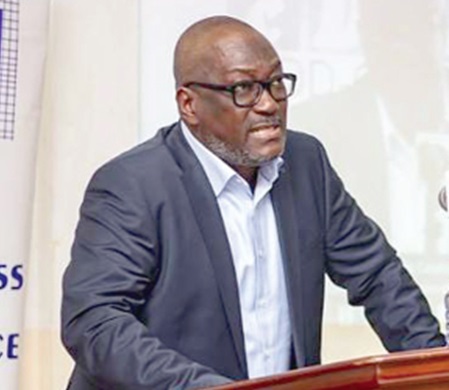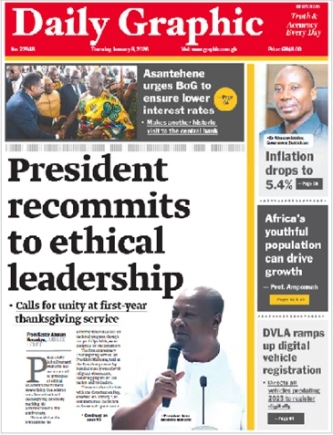
Navigating Constitutional Review: A comparative analysis of Mills and Mahama’s reform efforts
Ghana stands at a critical juncture in its democratic evolution, marked by ongoing discussions surrounding the country’s 1992 Constitution.
Two central figures in this journey, former President John Evans Atta Mills and President John Dramani Mahama have each led distinct efforts to review and amend this foundational document.
Although both leaders aimed to enhance democratic governance, their approaches and frameworks reveal differing priorities and methodologies—insights that are essential as Ghana navigates its path towards a more accountable and representative democracy.
President Mills introduced the Constitutional Review Commission in 2010, establishing a platform that prioritised inclusivity and broad societal representation.
Comprising nine members drawn from various sectors, including traditional leadership, law, academia, religion, and civil society, the Commission aimed to incorporate a diverse range of perspectives.
Traditional leaders like Kumbun-Naa Yiri II and Osabarimba Kwesi Atta II played a crucial role, echoing the necessity of integrating customary governance structures into the constitutional framework.
This breadth of representation was indicative of Mills’ commitment to achieving consensus among multiple stakeholders, intending to foster a democratic ethos that reflects the complexities of Ghanaian society.
Distinct approaches
In contrast, President Mahama has initiated a Constitutional Review Committee with a more focused mandate.
The Committee’s primary goal is to address specific gaps and challenges identified in previous reviews and to engage stakeholders in proposing actionable recommendations.
The Committee consists of seven members (exclusive of the secretary), including legal experts, academics and a media professional.
While the body is smaller than Mills’ Commission, its concentration of expertise allowed for a targeted approach to addressing pressing constitutional issues.
Notably, the Committee is headed by Professor H. Kwasi Prempeh, a well-respected legal authority and civil society advocate.
His appointment signals Mahama’s consensus-seeking strategy, as it combines expert knowledge with a willingness to engage voices that may have been critical of him.
One significant aspect of the composition of both bodies is their gender representation. Mahama’s Committee saw a more balanced gender distribution, with three women and four men, compared to Mills’ two women and seven men.
This modernised approach can be interpreted as a reflection of Mahama’s administration, which included Ghana’s first female Vice President, Professor Naana Jane Opoku-Agyemang.
The commitment to gender equality not only enriches the constitutional dialogue but also promotes the inclusion of women’s perspectives, ensuring that discussions on governance reflect the entirety of Ghanaian society.
Ahead of the review process, differing research findings emerged concerning the election of Metropolitan, Municipal and District Chief Executives (MMDCEs). CDD-Ghana, chaired by Professor H. Kwasi Prempeh, reported strong public support for the election of MMDCEs, though with resistance to elections on partisan lines.
Conversely, the Institute for Democratic Governance advocates for partisan elections, citing the current non-partisan framework as ineffective in fostering civic engagement and accountability.
These opposing perspectives highlight the expectation of a vibrant democratic debate that will enrich the process.
Critics may argue that Mahama’s choice of Prempeh as chair of the Committee indicates a selection tendency towards viewpoints aligned with the government’s stance on key governance issues.
Even so, the decision to appoint a notable critic within civil society suggests a broader willingness to accommodate dissent and diversify the discourse surrounding constitutional reform.
The varied backgrounds of Committee members—spanning fields such as governance, law, election administration and media—reinforce the notion that their findings will echo the multifaceted realities of Ghanaian citizens.
In analysing the broader implications of these distinct approaches, a few salient points emerge. Prof. Mills’ expansive method attempted to build consensus through inclusive dialogue, with an overarching ambition to unify disparate voices in the pursuit of national agreement.
On the other hand, Mr Mahama’s expert-focused strategy aimed to provide tangible solutions to identified challenges, prioritising swift and actionable recommendations over broad consensus.
Each strategy contains inherent strengths; while consensus-building can foster social cohesion, targeted reforms expedite the process of addressing urgent governance issues.
The interplay of these methodologies speaks not only to the evolution of governance in Ghana but also to the increasing complexity of the nation’s democratic fabric.
As citizens become more vocal about their rights and expectations, the need for responsive and representative governance becomes ever more critical.
Lessons drawn from both Prof. Mills and Mr Mahama’s initiatives can inform future constitutional deliberations, especially as Ghana seeks to embrace its diverse citizenry and strengthen democratic institutions.
Inclusion
As the nation continues to grapple with the implications of constitutional reform, it is essential to recognise the significance of inclusion, engagement and evidence-based decision-making.
The aspirations for a robust and equitable democratic governance system in Ghana will require the foundation of informed dialogue, reflecting the myriad voices of its citizens.
By critically analysing contrasting approaches and embracing differences, Ghana stands poised to forge a more inclusive political future.
In conclusion, the ongoing discourse surrounding constitution reform as spearheaded by Prof. Mills and Mr Mahama remains a vital cornerstone of Ghana’s democratic journey.
Emphasising different strategies, both leaders have contributed uniquely to shaping the narrative of governance in the country.
As stakeholders continue to engage in this crucial dialogue, the lessons drawn from their contrasting histories will undoubtedly guide Ghana towards a more democratic and responsive governance framework.
The writer is a political scientist.

 Click the link to read your copy.
Click the link to read your copy.